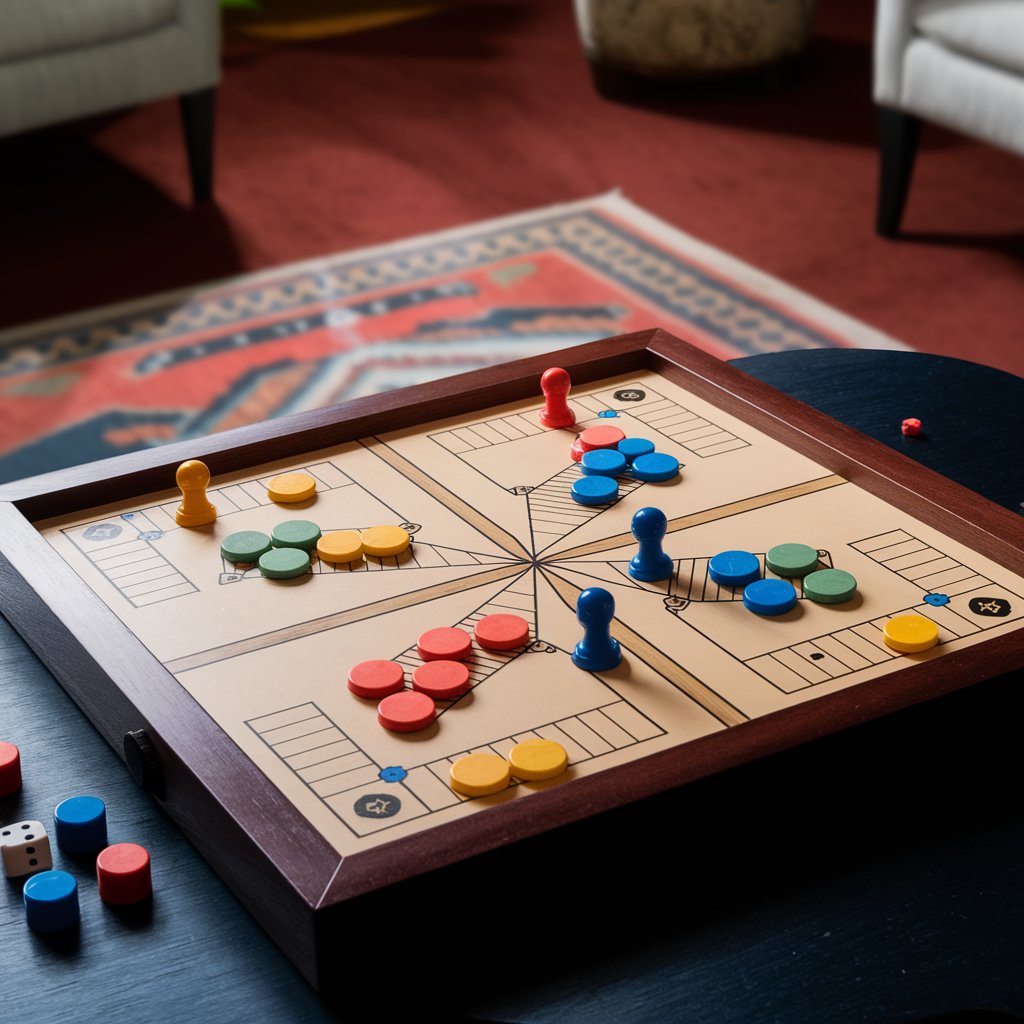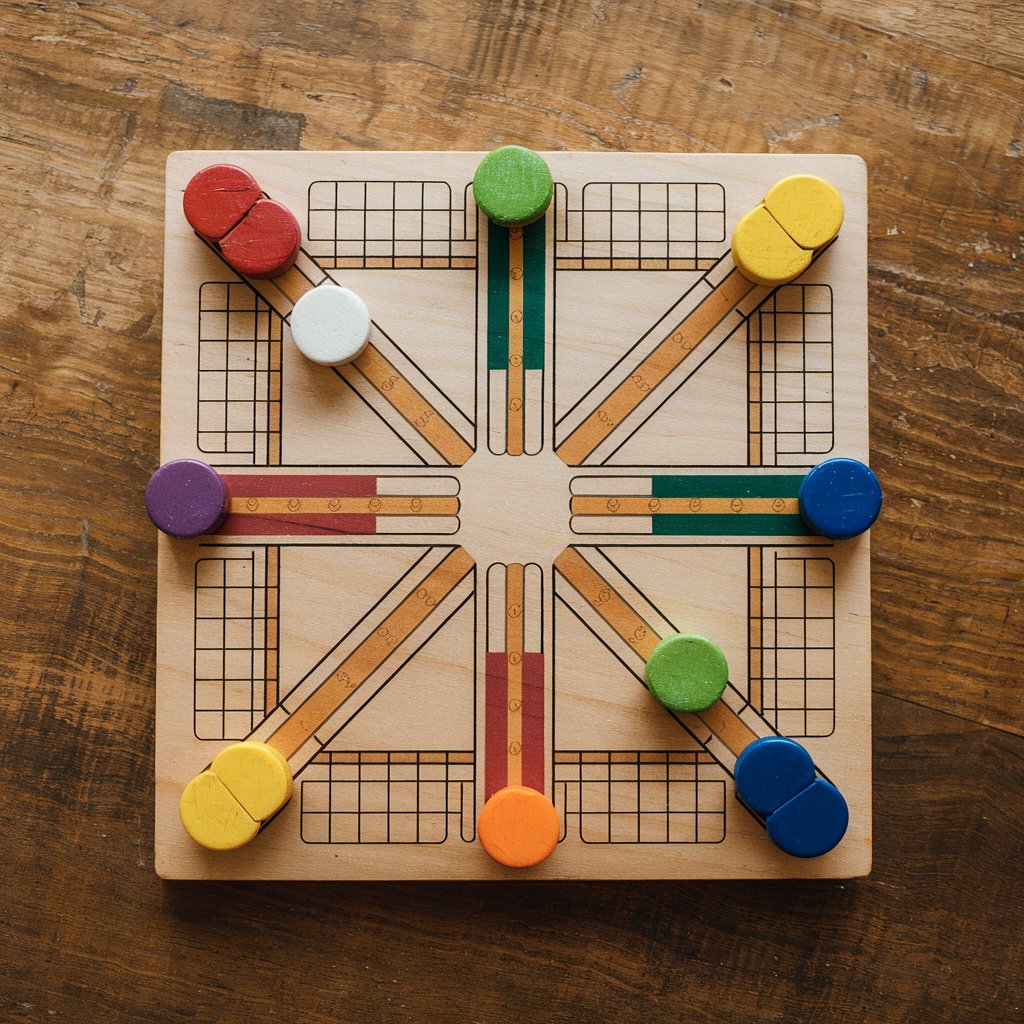How to Play Ludo Like a Pro: Tips to Win the Game Every Time
Ludo is one of those classical board games that have been enjoyed through generations-from strategy and planning down to luck. This, to many persons, looks just like a simple game where one simply needs to roll dice; however, getting the right numbers is basically not all there is in mastering Ludo.
Know how it goes, practice patience, and make tactical moves once you reach the course, well, and you will find yourself emerging the winner quite frequently. In this article, we detail different ways, well-researched tips, and personal anecdotes to ace Ludo and win games back to back.
Introduction
Ludo is the modification of an ancient Indian game called Parchisi. Maybe it’s because this was easy with strategic deepness, finding its way into the families and among friends.
The players take part in racing their four tokens on a square board divided into four colored quadrants from the respective starting space to the finish in pre-decided order. The trick of the game lies in getting the dice right and in choosing which token is profitably preferred to be moved.
However, luck oiled with a player’s decision makes Ludo frustratingly thrilling at once. The section below covers actionable tips through which this game can be mastered.
1. The Basics: It Is Not All Luck
Most beginners in Ludo seem to attribute winning and losing to the luck factor. Examples include “It’s all in the roll of the dice.” Of course, the dice do play a part, but it is your choices that will determine whether you win or lose. Permit me to relate a personal story to bring my point home.
One day, I played a Ludo match with my family. Worst was simply that the dice were not rolling very well for me at the beginning.
I just couldn’t get my pieces to leave my color’s starting area, really, while he faced no such issues and charged ahead. When my tokens did finally reach the board, yes, decisions on a strategic level did mean sacrificing some in order to block others and making strategic retreats-and things like that.
Believe you, to the surprise of all those people present in that hall, I won that game.
Takeaway? You can outsmart your opponents through a well-planned strategy even when Lady Luck is not smiling upon you.

2. Balancing Offense and Defense
This can be likened to a war zone where offense and defense would play a major role.
While some players are so aggressive in getting their tokens up the finishing line in record time, others play defensively. It simply boils down to knowing when to switch between offense and defense strategy to ensure that you win on a consistent basis.
Offensive Strategies:
Go one piece ahead: stress that at least one running token is essential for pushing the rest into early center gain. Kick opponents: once any opponent’s token falls in capture distance, never let it go; kick it back at least on the opponent’s start once the leading position is threatened.
Defense Strategies
Spread them out: Rather than having one token way ahead, try spreading them across the board. This gives you multiple options for your escape.
Safe zones are your friend: The Ludo boards have “safe zones” where your token cannot get captured.
Use them to save your tokens from aggressive opponents.
Timing as to when to switch between offense and defense yields great benefits.
3. Maximizing Move Opportunities
One of the most important decisions to be taken by a player in the gameplay of Ludo is which token to move. Now suppose you’re onto the board with many tokens; how will you choose which one to move? A trick: You should always choose the token that maximizes your future opportunities.
Play with a piece nearest to the finishing line. That is where your idea rests; it advances you toward your goal and leaves the rest to barricades or ambushes against your opponent.
Get all your pieces in the game: You don’t want those tokens of yours stuck in that starting area too long; you want options whereby you can move all over the board and multiply the tokens-which equates to options.
Not playing extra cautiously: Owing to this tendency just to keep your pieces in safe zones, sometimes it pays to take a risk. Time and again I have seen players who get overcautious lose their momentum and fall behind.

4. Reading Your Opponents
Most of them fail to predict or read their opponent’s move to master Ludo. You got to read just like you do in chess-the intention and one-up it.
Example-for instance, playing loud with my friends, I read from the pattern of my opponent that he would take ahead that piece of the token which is nearest to the finishing point whatsoever the circumstance is.
Using it in my favor, on opponent sets traps and sends my pieces to the start. Already anticipating his trick, I have taken the leading edge of my opponent.
Some Strategies to Read Your Opponents:
Observe their tendencies: some players will have preferences for moving one or two pieces. Use that against them in laying ambushes or blocking.
Look out for tight players: Some players are a bit too circumspect. Use that against them by becoming aggressive and trying to push your tokens ahead.
Be prepared for loose cannons: The most adventurous of players will make risks that they don’t need to.
If you find this, then change over to defense and allow them to make those chances in your favor.
5. Dice Probability Mastery
Though Ludo is a game of chance depending upon the roll of dice, one could still use his head through basic probability. The most salient point to remember is that a roll of six gives you another roll and sometimes changes the entire course of the game.
Anticipate a few moves in advance: You plan ahead of time when the luck of rolling a six-how you are going to maximize on the windfall.
You shall use it to bring one more token into play or take one piece closer to its safe zone or even to set up an attack.
Weigh risk: If you have to roll on a certain number to get onto a safe square or avoid capture, look at the probability. With six-sided dice for example, the chance of a specific roll is 1/6. You’ll often be faced by ultimate tactical decisions where to move is highly hazardous but also yielding great rewards.

6. The Psychology of Patience
Patience could well be one of the striking yet rewarding features of mastering Ludo. I have seen enough players irritated and making uncalled-for moves which cost them the game.
Many times, Ludo tests your emotional strength. Sometimes you would want to rush, but composure helps in keeping your cool.
One pretty tight game that comes to mind is when I had two pieces just near the finish and my opponent was somewhat in the way. Well, I never mustered much courage for a gutsy play.
Sat back waiting for time, which happened once I rolled the numbers that took me into the winning of the game, because I didn’t freak out.
Patience is not only in waiting but how wiser to use your time by considering all the possible moves. If you don’t see any clear path towards success, then step back and watch the way the game is developing. Many times your opponents will make some mistake, and you can take advantage of that.
7. Blocking Your Opponents
In fact, blocking was considered one of the strongest games in the defense of Ludo. Once anyone gets a chance to push his token in front of his opponent, then he will compulsorily have to wait for your move or make a few riskier moves that might save their token from capture.
Block critical spots: There are, of course, important positions in the Ludo board-for instance, at safety and at choke points. These will certainly be various places that the players will cross.
You block them, reducing their mobility; with that comes greater chances of sending any one of them back home.
Create psychological pressure: Blocking opponents forces the opponent to do some sort of reactive move. In such a way, this pressure may force them to make lousy decisions, which then gives one a good advantage.
8. Adapt to Multiple Players
Ludo requires two to four players in a team, and each one of them has his or her style. First, the skill of adjustment grows by comprehending the various playing styles of your opponents to alter your strategy in the middle of a game.
Playing Against Aggressive Players :
Be a player of Defense. An attacking player would take you off the board whenever possible. You be counterattacking with more and more defense moves by reaching safe zones and maintains distance between your coins.
How to Play Against Cautious Players:
Attack him. He is bound not to create a conflict so this is the time to move your tokens as fast as possible and catch him off guard.
How to Play Against Random Players
Random players have no game plan; hence, they are not predictable. The only style of the game against them is to keep the balance in the game by moving pawns upwards as well as backwards.

9. Learning Endgame
The endgame probably is the most nail-biting part of Ludo since the board has almost filled up, with players growing much warier and their tokens headed for the finishing line; all one needs to do is just to keep trying and not let the pressure get to him.
Be very careful: When you are at the end with your token, instead of attacking opponents, make moves. The closer to the end, the less risk you want to take.
Coordinate pieces: In case you have more than one token near the finish, try to time it so that if possible, they don’t block each other, for in this way, it will maximize the options not to get trapped.
10. Practice Makes Perfect
Like any game, perfection comes with practice. The more you play the game and get accustomed to peoples’ styles of play, the better you get to know about the patterns in efforts to fine tune your strategies.
It may just be a casual game, but in truth Ludo does reward those that put little thought into each and every move.
Closing Thoughts
The mastery of Ludo is somewhat beyond just rolling a dice. It is a game involving strategies, psychology, and patience-finding that right balance between offensive and defensive strategies, availing yourself of any opportunity, reading your opponents, and just being patient; all put together, these can give one an ace to massively improve one’s chances of winning in this game.
Where the great Ludo players differ from mediocre ones is in the adjustment. No two games will ever be the same since each opponent brings a different kind of challenge altogether.
Just keep calm, stay a few moves in advance in the game, and you are onto nothing but mastering Ludo and making it a fount of fun and continuous success.
Remember: It is not always the best throw of the dice which wins, but the wittiest player.

Hi! Do you know if they make any plugins to assist with SEO?
I’m trying to get my site to rank for some targeted keywords but I’m not seeing very
good success. If you know of any please share. Cheers!
I saw similar blog here: Blankets